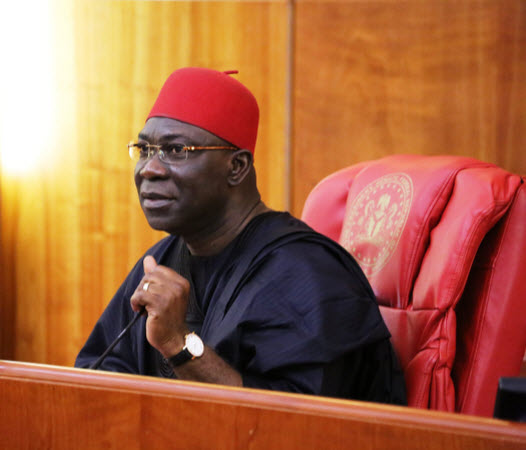There are no products in your shopping cart.
| 0 Items | £0.00 |

 DEPUTY senate president Senator Ike Ekweremadu has urged the Federal High Court in Abuja to dismiss an ex-parte application filed by the federal government seeking the seize his 22 undeclared houses in Nigeria and abroad arguing that the action is illegal.
DEPUTY senate president Senator Ike Ekweremadu has urged the Federal High Court in Abuja to dismiss an ex-parte application filed by the federal government seeking the seize his 22 undeclared houses in Nigeria and abroad arguing that the action is illegal.
Earlier this month, anti-graft officials asked the Federal High Court in Abuja to temporarily seize some properties including two houses in the UK belonging to Senator Ike Ekweremadu. According to the Okoi Obono-Obla Special Presidential Investigation Panel for the Recovery of Public Property, Senator Ekweremadu failed to declare of the said properties in his assets declaration forms dated June 1, 2007 and June 1, 2015.
Last month, Sahara Reporters revealed that Senator Ekweremadu owned two choice properties in the UK with a combined value of £3.73m. According to the news outlet, UK land registry documents list the addresses of the properties as 52 Aylestone Avenue, London, NW6 7AB and Flat 4, Varsity Court, 44, Homer Street, London, W1H 4NW.
Nine of the targeted properties are said to be in Abuja and apart from the two in London, eight are in Dubai, the United Arab Emirates and three are in Florida, in the US. Fighting back, however, in a motion he filed in opposition to the ex-parte application, Senator Ekweremadu contended that the Special Presidential Investigation Panel for the Recovery of Public Property had no locus standi to file a suit for the forfeiture of his houses.
He urged the court to declare the panel unconstitutional, illegal, null and void. In addition, the senator argued that the presidential panel was established by a military decree in 1983 and had since been replaced by the Code of Conduct Bureau pursuant to the provisions of the Code of Conduct Bureau/Tribunal Act and the 1999 Constitution.
Senator Ekweremadu contended that a dead panel lacked the locus standi to, on behalf of the federal government, probe and apply for an interim court order for the forfeiture of his 22 assets. He contended that the Code of Conduct Tribunal and not the federal high court, had jurisdiction to hear matters relating to assets declaration by a public officer.